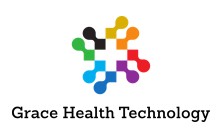Changes in Healthcare Organizations of the Future
From the diseases we face to the technologies we use to treat them, healthcare in the United States is changing rapidly.
Frank Magliochetti confirms: that just a few short decades ago, most people received care from their family doctor and paid for it through private insurance provided by an employer. Diagnostic tests were limited to x-rays and a few blood tests, and treatments involved first generation drug therapies and invasive surgical procedures. Patient records were kept in a dusty basement offsite, and the information they contained was accessed only to provide continuing care to that individual patient. Computerized medical records, advanced fMRI and CT scanning, and robot surgery common today was the stuff of science fiction just 20 years ago.

Tomorrow’s healthcare landscape will be decidedly different from the care provided today, and light-years away from the healthcare of our parent’s day. A number of various factors, such as demographics, legislation, and technology, affect nearly every level of healthcare and affect nearly every person working in healthcare. These factors will drive the major changes occurring in healthcare over the next two to three decades.
The diseases people face will likely change as well. Diseases that were almost unheard of in younger populations years ago, such as obesity, diabetes and heart disease, will become major health issues across the generations.
The use of hospital services will likely grow significantly in the next decade, largely because of the increase in Medicare beneficiaries. The cost of hospital care will also rise; The George Washington University School of Business predicts this cost will increase from 0.9 percent to 2.4 percent of the budget by 2025.
Care will likely center on the patient’s experience, rather than on the needs of the institutions providing that care. Patients will have detailed information, on par with that collected by their doctor or hospital, about their own health and about health in general. The patients of tomorrow will also enjoy greater ownership of that data, and they will play a greater role in the decision-making process when it comes to their own health, well-being and medical care.
The Healthcare of Tomorrow
Healthcare in 2040 is only 20 years away, but it will be vastly different from what we have today. Two decades ago, we could not have envisioned the wearable devices that are commonplace today; medical technology will take us places in the next two decade that we cannot begin to imagine today. The next generation of sensors will likely move from wearable devices to invisible, always-on sensors embedded in devices surrounding us – or even embedded inside of us; medtech companies are already investigating ways to incorporate these always-on biosensors and software into devices that generate, gather and share health data.

By 2040, independent streams of health data will merge to create a multifaceted, complex and highly personalized picture of each individual’s well-being, for example. Artificial intelligence (AI) will allow for wide scale analysis of vast amounts of information and the creation of personalized insights into consumer health. The availability of this data and personalized insights can enable precision real-time interventions that allows patients and their caregivers to get ahead of sickness early enough to avoid catastrophic disease. Armed with a lifetime of highly detailed information about their own health and with a natural penchant for mobility, consumers of 2040 will also probably demand that their health information be portable.
Because of the demand for mobility and information management, technology such as interoperable data and AI will be major drivers of change, but only if the open platforms necessary for mobility and AI are secure. Information technology (IT) professionals will continually develop technologies that process threat data more efficiently and more accurately predict criminal activity.
While nobody can predict exactly what the healthcare landscape will look like in 2040 and beyond, nearly everyone can agree that it will be vastly different from the care we receive today.
Source
To View Frank Magliochetti Press Releases Please CLICK HERE
Frank Magliochetti owes his professional success to his expertise in two areas: medicine and finance. After obtaining a BS in pharmacy from Northeastern University, he stayed on to enroll in the Masters of Toxicology program. He later specialized in corporate finance, receiving an MBA from The Sawyer School of Business at Suffolk University. His educational background includes completion of the Advanced Management Program at Harvard Business School and the General Management Program at Stanford Business School. Frank Magliochetti has held senior positions at Baxter International, Kontron Instruments, Haemonetics Corporation, and Sandoz. Since 2000, he has been a managing partner at Parcae Capital, where he focuses on financial restructuring and interim management services for companies in the healthcare, media, and alternative energy industries. Earlier this year, he was appointed chairman of the board at Grace Health Technology, a company providing an enterprise solution for the laboratory environment.
Mr. Frank Magliochetti MBA
Managing Partner
Parcae Capital
www.parcaecapitalcorp.com
www.frankmagliochetti.com







